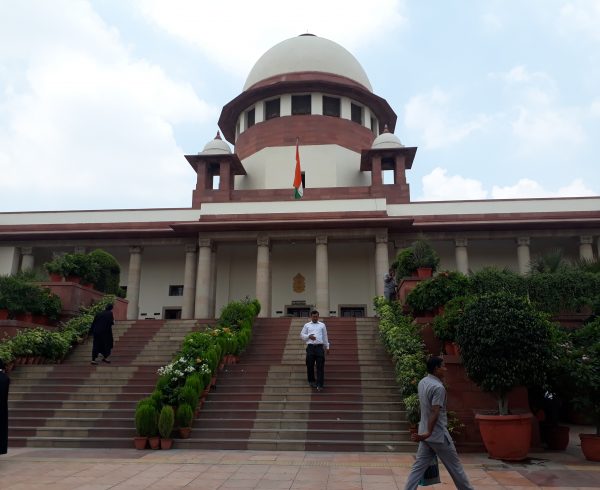The 2019 Hollywood film “Knives Out” proved to be an unexpected success, both commercially and critically. However, this article does not aim to review the movie or delve into the reasons for its popularity. Instead, it intends to delve into one of the legal principles highlighted in the film. The movie revolves around uncovering the identity of the person responsible for the death of the family patriarch. While the central plot focuses on solving the murder mystery, it also delves into the intricacies of estate planning and inheritance related to the deceased patriarch. In this context, the film explores a legal defense known as the “Slayers statute/rule,” which becomes relevant when contesting the inheritance of the deceased individual.
This article and looks to explore its origin, its relevance, and its applicability of the Slayers statute/rule” in the Indian context.
Origin of the Slayer’s Rule
The rule has its origin in the common law principle ‘that no person can take advantage of his own wrong’. Applying this principle to inheritance it effectively means that no one can inherit from a person they are guilty of slaying/ killing. The rule can be expanded further that such an act not only prevents people directly involved in the death of others from inheriting from the deceased, but also prevents those who were complicit in the killings i.e. assisted the murder, or who, in any other way, played a role in the death from inheriting.
The rule owes its origin to the basic ideals of morality as should be followed in a civilized world. The idea was for the first time put to test before the New York court in the famous case of Ryan v Palmer[1] where the court faced the dilemma of limits of law and the debate between morality and law. The fact of the case was that a grandson who was named as the successor in the will of his grandfather poisoned him so as to prevent him from changing the will in the near future. As per the law, the heir (grandson) was to succeed the testator (grandfather) and disinheriting the grandson would amount to punishing him which is not permissible by law. However, the majority ruled against the grandson and held the view of disinheriting a slayer and gave social justice a higher footing than the preservation of property.
Relevance of Slayer Rule
The relevance of this rule is that it brings to the forefront one of the most intrinsic jurisprudential debates the one between law and morality. The debate promulgated by the positivist school that law must be separate from morality, the law needs to be “as it is” separate from law “as it ought” to be. As per Austin one of the main proponents of Positive School the doctrine that needs to be followed is that the Existence of law is one thing, its merits and demerits are another, and a Judge deciding a case must follow the law as it is. Thus if we are to follow this principle in the above case the grandson could not have been deprived of his grandfather’s estate unless a law in contrary existed at that time.
While on the other side of the spectrum is the Natural Theory of law and moral foundations of legal theory. The law should be in the conformation of the idea of God’s justice. There will be belief in law if it is in conformity with the moral ideals of the society that follows it. Thus, to let the grandson inherit a property which has been achieved by such devious means shocks the consciousness of the society and such a law should not be permitted.
If the Slayer’s Rule is applied then it allows the court to presume that the killer has disclaimed her property interest i.e. has the effect of disqualifying the killer from receiving the property from the estate of the victim. The Slayer Rule is widely accepted as a rule of public policy and it is prevalent in many countries like England, Canada, the U.S.A, and Australia etc.
Applicability of Slayer Rule in India
In India, the term ‘Slayer Rule’ has neither been explicitly mentioned nor been codified in any specific statute and such provision has not specifically provided for. However, various precedents are there with respect to the disqualification of murderers in inheriting the intestate property established by the principle of Slayer Rule in India especially under the personal laws of both Hindus and Muslims. In fact, the Legislature went ahead and codified the law under the Hindu Succession Act of 1956 by inserting Sections 25 and 27. However, the Indian Succession Act, 925 has no provision for the application of the Slayer Rule.
Under the Hindu Succession Law:
Prior to the amendment of the Hindu Succession Act, Section 25 and 27 were not there and the murderer was disqualified from being the legal heir upon the principles of justice, equity, and good conscience. In Kanchava Kom Sanyellappa Hosmani & Anr. vs. Girimllappa Channappa Somasagar AIR 1924 PC 209 it expressed that even if the Hindu Law did not disqualify the murderer from succeeding to the estate he was so disqualified upon the principles of justice, equity, and good conscience. Further, “it was held that “the murderer is not to be regarded as the stock for fresh line of descent but should be regarded as non-existence”. Thus, the Hindu Succession Act was amended in 1956, Sections 25 and 27 were added towards the codification of the principle of Slayer Rule and to give statutory sanction to a judgment made by the Privy Council in Kanchava (supra). Section 25 of the Hindu Succession Act, 1956 (hereinafter referred to as “the Act”) mentions the disqualification of heirs under certain circumstances. Section 25 of the Act states that “A person who commits murder or abets the commission of murder shall be disqualified from inheriting the property of the person murdered, or any other property in furtherance of the succession to which he or she committed or abetted the commission of the murder”. Section 27 of the Act states that “If any person is disqualified from inheriting any property under this Act, it shall devolve as if such person had died before the intestate.
The effect of Section 25 read with Section 27 of the Act is that the murderer is totally disqualified to succeed to the estate of the deceased. Under the provision of Section 25 of the Act if any person is found to be guilty of murder or abetment of murder of the deceased intestate shall forfeit his right to inherit the property of the deceased. Whereas under the provision of Section 27 of the Act, if any person is disqualified from inheriting the property under Section 25 of the Act, it shall devolve as if such person had died before the intestate. Section 27 of the Act makes it clear that a person who has murdered a person through whom he wants to inherit property stands disqualified on that account.It is relevant to mention that Section 27 of the Act does not disqualify any offspring of the disqualified heirs under Section 25 of the Act and he shall succeed to the estate of the intestate as if the disqualified ancestor predeceased the intestate when the succession opened.
The Section 25 of the Act, applies to inheritance and testamentary succession. The confusion was further clarified by the Madras High Court and further by the Hon’ble Supreme Court where it was held that a distinction between inheritance and testamentary succession to the deceased’s estate and his murderer doesn’t exist and the murderer is not entitled to any right in the property of the deceased. Further, it was held that once the son is totally disinherited then the whole stock stands disinherited i.e. wife or son[2].
The Supreme Court of India and various other High Courts over the period of time have reiterated the principle of justice, equity, and good conscience held in Kanchawa vs. Girimllappa case. The Concept of justice, equity, and good conscience comes into play in the absence of any legislative provision. In India, during the imperial era, an assumption had persuaded the court to embrace English law as justice, equity, and good conscience[3]. In Mata Badal Singh and Ors. Vs. Bijay Bahadur Singh and Ors. 1956 Allahabad 707 it was held that a murderer shall be treated as non-existence qua the estate of the murdered person that is to say no title to the estate of the murdered person can be claimed by the murderer.
The definition of the term murder used in Section 25 of the Act shall not be compared with the technical definition as defined in Section 300 of the Indian Penal Code, 1860. But it has to be construed in the wider and popular sense, which may include in its import even culpable homicide or unlawful manslaughter[4]. So while dealing with Section 25 of the Act liberal definition of the term murder has to be construed without going into the technical definition. If the definition of Section 300 of the Indian Penal Code, 1860 is taken into consideration while dealing with the term murder under Section 25 of the Act, the same will defeat the very purpose of the statute. It will also run counter to the well-established principles of equity, justice, and good conscience[5]. In order to apply the disqualification under Section 25 of the Act, it is not necessary/mandatory that a person who committed the murder or abetted the commission of murder must also have been convicted of the offence of murder under Section 302 of I.P.C[6]. The murderer is not disqualified under the provision of Section 25 of the Act from succeeding to the estate of the deceased if the judgment of clear acquittal is passed in favour of the murderer[7].
It is pertinent to mention that under Section 25 of the Act, the Civil Court has jurisdiction to decide the question of whether a person has murdered or abetted the commission of murder and on taking into account the facts as would be placed before him by way of evidence independently and without being influenced by the finding of Criminal Court while adjudicating the charge of murder. The judgment of the Criminal Court convicting a person of murder is not binding upon the Civil Court and the same has to be independently determined by the Court[8]. However, the Hon’ble Delhi High Court in Chaman Lal vs. Mohan Lal AIR 1977 Del 97 held that after the acquittal of a person in charge of murder under Section 302 of IPC, there was no scope to reopen the same matter by the Civil Court in adjudicating the proceeding to disqualify the acquitted person to inherit the property in terms of Section 25 of the Act.
Under Muslim Law
There is no codification of law with respect to succession under Islam and the principle of personal law based upon the texts of the Quran is followed. The law of inheritance as stated in the Quran is based on the underlying cause of `the benefit of kinship’. In normal circumstances, the estate will devolve onto the heirs to the legacy of a deceased. However, in certain unusual circumstances, if an absence of benefit in any of these relationships is diagnosed by sense and reason, the style and pattern of the verse demand that such a relative should not become an heir to the legacy. One such case is when the heir is responsible for the death of the person from whom he inherits. The Prophet clearly bars such a person “The slayer shall not receive the legacy of the person he slays.” (Tirmazee, Kitab-ul-Faraaidh, Chapter 17). The position is very similar to what is there under the Hindu Succession Act, 1956, and has been well established by the Courts in India.
Under Sunni Law, a person who has caused the death of another whether intentionally or by mistake, negligence or by accident is debarred from succeeding to the estate of the deceased person. However, In Shia law, murder is not bar to succession unless the death was caused intentionally.
The Hon’ble Delhi High Court in Kareemul Hajazi v. State of NCT Delhi and Ors 2011(1) JCC 500 had held that:
“It is a principle of Muslim Law that a person responsible for the death of another person from whom the first person is otherwise to inherit would be disqualified from such inheritance. For determining the persons who would, in such a situation, inherit the estate of the deceased, the person who was responsible for the death, would, as aforesaid, be disqualified from inheritance and would be regarded as non-existent.”
It is noted that the law of succession in India depends upon the personal law by which the deceased person is governed and this is one of the major loopholes in the application of Slayer Rule in India as the Christians and Parsis are governed by the Indian Succession Act, 1925, and the act does not contain any provision regarding the slayer rule.
Way forward:
Prima facie it may seem that the Hindu laws and Muslim personal laws do contain some provisions which uniformly apply in restricting or disqualifying a person from taking inheritance of the person he murdered. But still, some questions are still unanswered:
- Does the Slayer’s Rule apply if a Hindu dies leaving a will?
- Does the Hindu Law lay down the rule that a legatee murdering the testator is or is not entitled to succession?
- Does the Slayer’s Rule apply to other Indian communities like Christians and Parsis?
[1] 22 N.E. 188, 189 (N.Y., 1889).
[2] Vellikannu vs. R Singaperumal & Another (2005) 6 SCC 622 (India).
[3] Shri Rattan Lal vs. Shri Vardesh Chander (1976) 2 SCC 103 (India).
[4] Sarvanabhava vs. Sallemmal 1972 2 MLJ 49 (India).
[5] G. S. Sadashiva vs. M.C. Srinivasan AIR 2001 KARNATAKA 453 (India).
[6] Nannepuneni Seetaramaiah & Anr. vs. Nannepuneni Ramakrishnaiah AIR 1970 AP 407 (India).
[7] AIR 1977 Delhi 97 (India).
[8] Anil Bala Ghosh vs. Latika Bala Dassi & Ors. 1955 AIR 566 (India).
ABOUT THE AUTHOR
 Vikrant Kumar
Vikrant Kumar
Meet Vikrant Kumar, an associate at Vedya Partners. Vikrant specializes in Civil Litigation and is a seasoned lawyer who frequently represents clients in a wide array of legal forums in Delhi. His practice spans from appearances before the Hon’ble Supreme Court to District Courts, NCLT (National Company Law Tribunal), NCLAT (National Company Law Appellate Tribunal), and NCDRC (National Consumer Disputes Redressal Commission).
Beyond his legal expertise, Vikrant harbors a profound interest in areas such as Political Science, Arbitration, Contract Law, Legal Writing, and Corporate Law. His dedication and unwavering commitment to the field of law are evident through his diligent work and passion for delivering justice.





